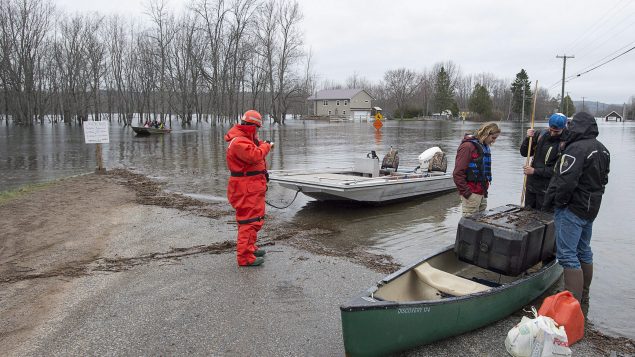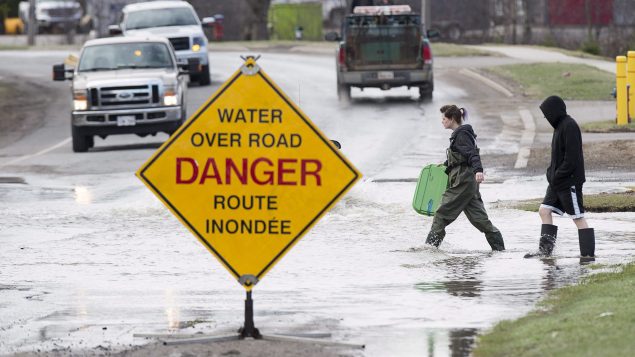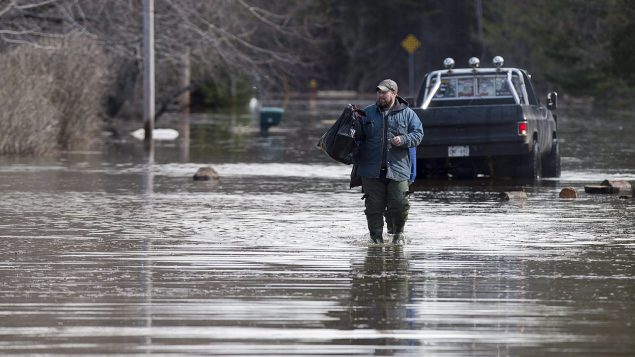While water levels in the St. John River have fallen over the last two days, provincial authorities in New Brunswick are urging residents to remain patient.
“A great number of New Brunswickers have been displaced for a long time and it is understandable they want to get home,” said Greg MacCallum , director of the provincial Emergency Measures Organization. “But simply because the river is lower does not mean it is safe to return home.”
Water levels remain high in several areas. Every community between Fredericton and Saint John is expected to remain above flood level until the weekend.
The current in the St. John River is strong and the water is cold and carrying debris, officials said.

Residents stage at water’s edge at Darlings Island, N.B. on Thursday, May 3, 2018 as the Kennebecasis River flooded the only road into the community. (Andrew Vaughan/THE CANADIAN PRESS)
Authorities also worry that the floodwater itself can also be heavily contaminated with sewage, fuel and agricultural chemicals and pose health risks such as sickness and infections.
EMO warned that water should not be consumed from private wells until they have been tested.
EMO spokesman Geoffrey Downey said anything that has come into contact with the floodwaters should be handled carefully.
“That ground is potentially contaminated, so people have to proceed with caution both for things they can see, including everything from an animal carcass or propane tank to nails and all kinds of junk,” he said.
“Just because the river’s dropping doesn’t mean it’s time to toss that kayak in or get the motor boat out or go swimming.”

Local residents head to check on their house surrounded by the waters of the St. John River in Fredericton, N.B. on Sunday, April 29, 2018. (Andrew Vaughan/THE CANADIAN PRESS)
Many provincial and municipal roads have been covered by a significant amount of water for more than a week.
But while some of those roads may now be dry, it does not mean they are safe to use, said Downey.
Municipal and provincial officials must inspect closed roads, culverts and bridges before they are reopened, officials said. B
Authorities also called on residents to respect road closures even if they appear intact.
“Evacuees are tired and want to return to their normal routine, and everyone is working hard to make it happen, but rushing back home has the potential to make a bad situation worse,” said MacCallum.
With files from The Canadian Press and CBC News







For reasons beyond our control, and for an undetermined period of time, our comment section is now closed. However, our social networks remain open to your contributions.